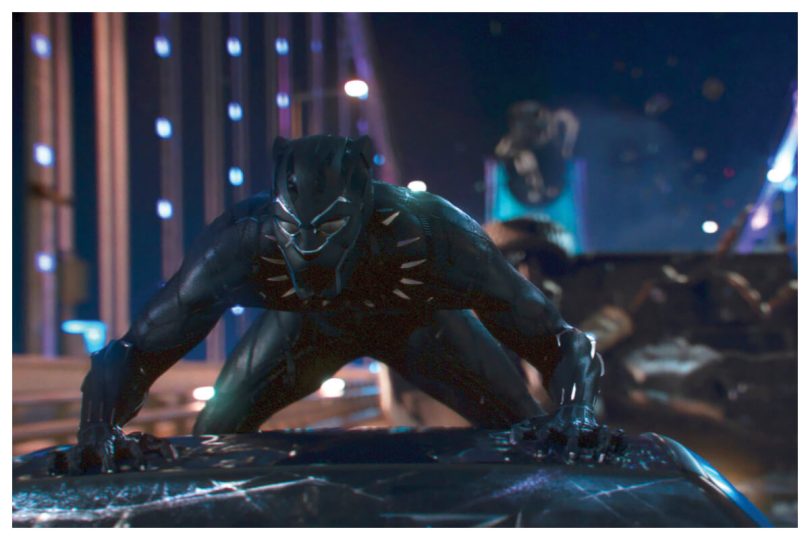A lot was expected from Black Panther: Wakanda Forever because its predecessor had done well at the box office when it was released four years back. But the thirtieth film in the Marvel Cinematic Universe turned out to be more about the antihero than the hero. That’s where the makers got it wrong because instead of giving the audience better action sequences, a strong plot, and a film that takes the universe forward, they gave them fewer action sequences, a weak plot dominated by dialogues, and a film that doesn’t do the MCU any favours.
The Plot
The film takes place after the death of Black Panther T’Challa (Chadwick Boseman) King of Wakanda, who succumbs to a disease that could have been prevented, had Killmonger (Michael B Jordan) not destroyed the heart-shaped herb. One year later, Wakanda’s Queen Ramonda (Angela Bassett) warns the world against attempts to get their hands on Vibranium and asks her daughter Shuri (Letitia Wright) to continue her research to create the magical herb, but Shuri refuses since she no longer believes in Black Panther.
However, when an unexpected foe Namor (Tenoch Huerta) first infiltrates Wakanda’s advanced security and later abducts a scientist Shuri was protecting, Queen Ramonda decides to take matters into her own hands. She approaches Nakia (Lupita Nyong’o) for help who unknowingly instigates a fight between the sea people of Talokan and the surface people of Wakanda which results in numerous deaths. That’s when Shuri starts believing in the myth of Black Panther, and her steps go on to save ‘Wakanda Forever’, hence the name of the film.

The Good
Director Ryan Coogler who helmed the first Black Panther film decides to create a film around Chadwick Boseman’s death at the age of 43 and pays him a tribute that would make his fans teary-eyed. That’s why instead of an action flick, he comes up with a sober film that explores the grieving process. It wouldn’t have been possible without the brilliant performance of the magnificent Angela Bassett who as a grieving mother and Queen does a commendable job. Letitia Wright, who played T’Challa’s younger sister Shuri in the original flick, takes centre stage here and impresses, which is a good thing because her character evolved after the tragedy.
All those who saw the first film were impressed by the production design and here, the same team of Hannah Beachler and costume designer Ruth Carter return for the sequel and do a near-perfect job. They go beyond Wakanda and create an underwater world where Namor and his people live, without the fear of being attacked, in the same way as the Wakandans do. The creative duo comes up with dresses, architecture, and a language that represents the Mayan folklore and impresses the audience, again. One hopes that in coming MCU films, Namor’s aquatic den will be explored in a better way so that the viewers get to know more about his tribe.

The Bad
Black Panther: Wakanda Forever suffered from the Avengers: Endgame syndrome and couldn’t recreate the ‘more the characters, more the success’ formula. It had too many dialogues, the plot involved too many characters, and there were too few action sequences which would certainly have angered some of the fans. Inserting another Marvel character Ironheart (Dominique Thorne) seemed like a desperate measure to attract the audience, which could have been avoided so that the viewers took back only one superhero, and not multiple new characters.
Instead of taking the story forward, the makers decided to use techniques that would have worked better in a dramatic film, but not in a flick featuring a Marvel superhero. Too much emphasis on the antihero Namor and too less on Black Panther wasn’t just one of the reasons to not like this film. At 2 hours and 40 minutes, it was too long for a sequel, designed as an origin story. And to top it all, the beloved hero of millions across the world doesn’t make its appearance in the first two hours, and when it does, it’s not as powerful as one would expect.

The Verdict 3/5
Black Panther: Wakanda Forever could have been a contender had the director Ryan Coogler understood what the audience wanted. There were many ways to introduce a new Black Panther but he chose to give the audience a method they weren’t ready for. Some might say that grief was the most valuable ingredient in this film but he forgot that Marvel’s audience is more about action than drama. It would have been better had the producers paid tribute to Chadwick Boseman in a documentary that came out ahead of the film, instead of making them wait for an action flick where the action took the backseat!

This film not only dents the franchise but also those who were all set to forgive and forget Marvel flicks like The Eternals, Morbius, and Thor: Love and Thunder which might or might not have done well at the box office, but were not up to the Marvel standard. They will have to do some great work in the coming days to restore the dignity of the MCU, which reached its zenith after Spider-Man: No Way Home but hasn’t been able to recreate that magic since. The decision to release this film just weeks after rival DC’s Black Adam and a month before Avatar: The Way of Water – which also features another kind of aquatic den – was always going to be tricky and might hinder in the box office collection of the Black Panther sequel. Let’s hope it does well at the Box Office so that the next flick in the series returns Black Panther to its lost glory. -Ends







